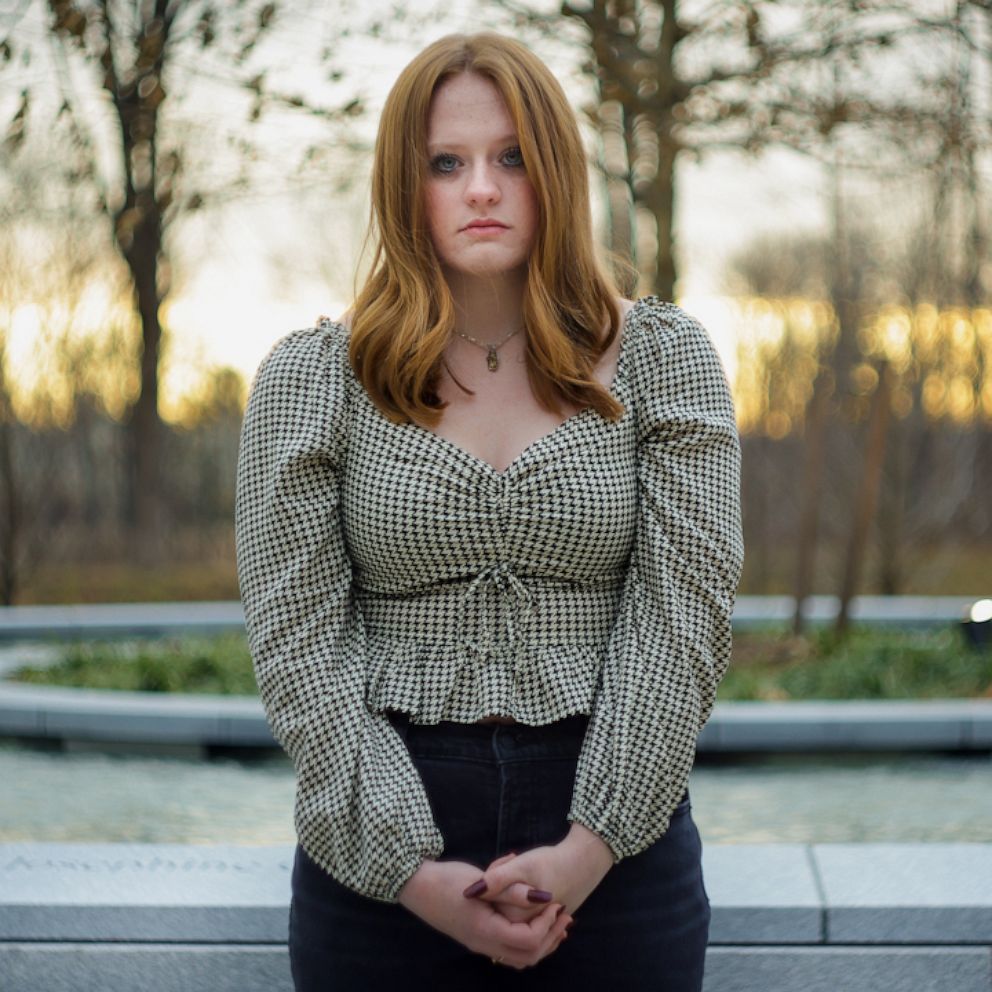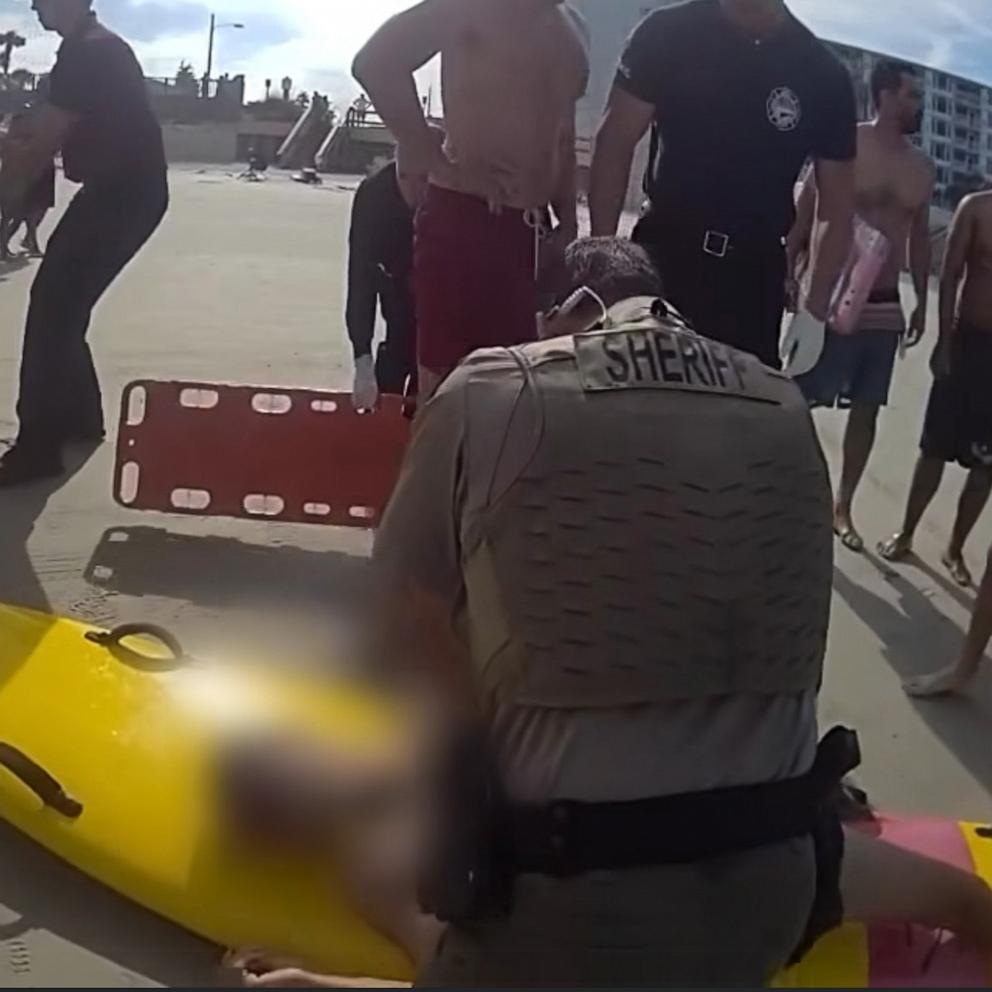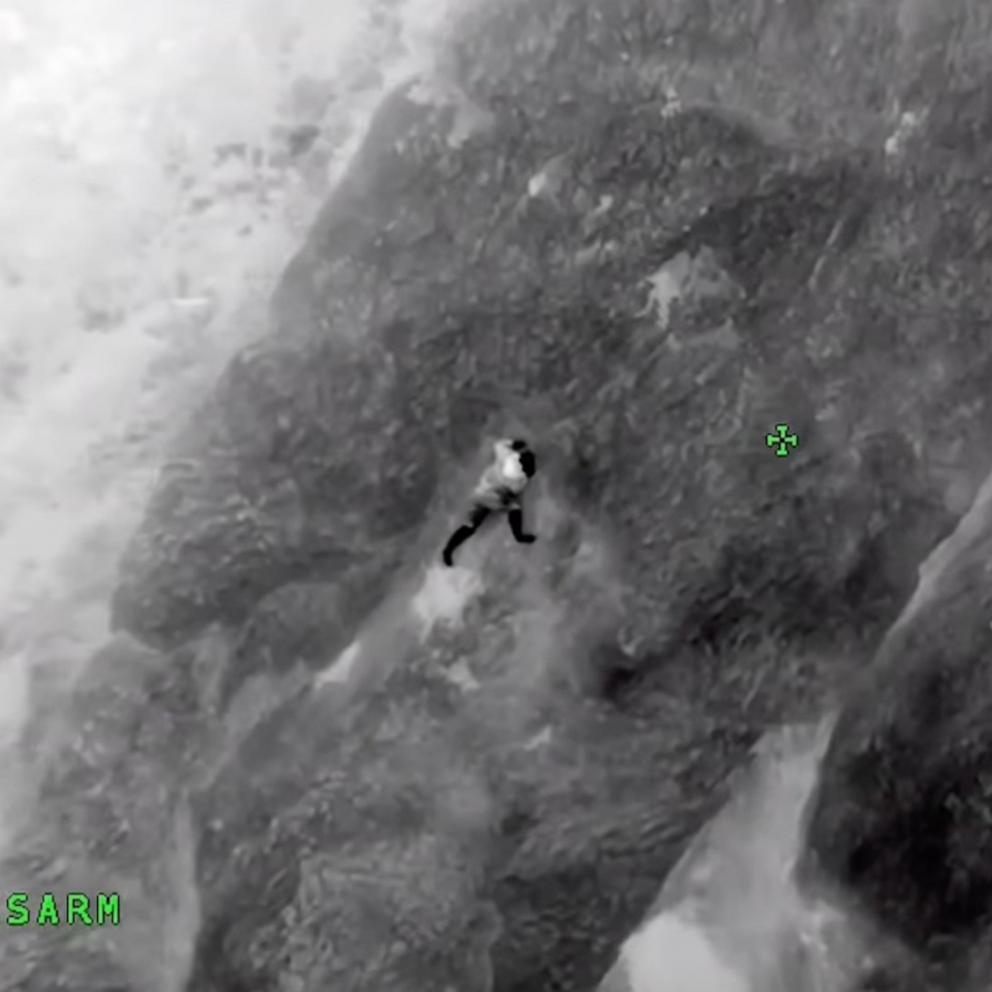How IVF has redefined the modern family
Over 40 years ago, the world's first "test tube baby" was born. Louise Joy Brown's conception via in vitro fertilization and the resulting birth ushered in a new age in modern parenthood. The idea of a baby being conceived outside of the human body was mind-blowing in 1978, but since then more than 8 million babies around the world have been born through IVF, according to International Committee Monitoring Assisted Reproductive Technologies.
IVF, originally created to fight infertility, has expanded to allow people to think beyond the traditional family and carve a new path to parenthood.
"I chose this field for the science and for the medicine and for the drama and for the excitement and for the amazing things that we can do for people," says Dr. Richard Grazi, founder of Genesis Fertility & Reproductive Medicine in Brooklyn, New York.
ABC News spent more than a year following four families on their unique IVF journeys. As different as these families are, there is one common theme: There are no guarantees on the road to parenthood.
Overcoming cancer
Aviva Love and Adam Lazaros were married in 2013 and able to naturally conceive their son Benji two years after later. When the couple was ready to try for baby No 2, they were dealt a surprising and devastating blow: Lazaros, 30, was diagnosed with testicular cancer in January 2017.
Doctors said there was a chance he may never be able to have another child.
"That was the only time I cried through the whole thing was when I got that phone call that you probably won’t have children. That was just such just a gut-wrenching blow," Lazaros told ABC News.
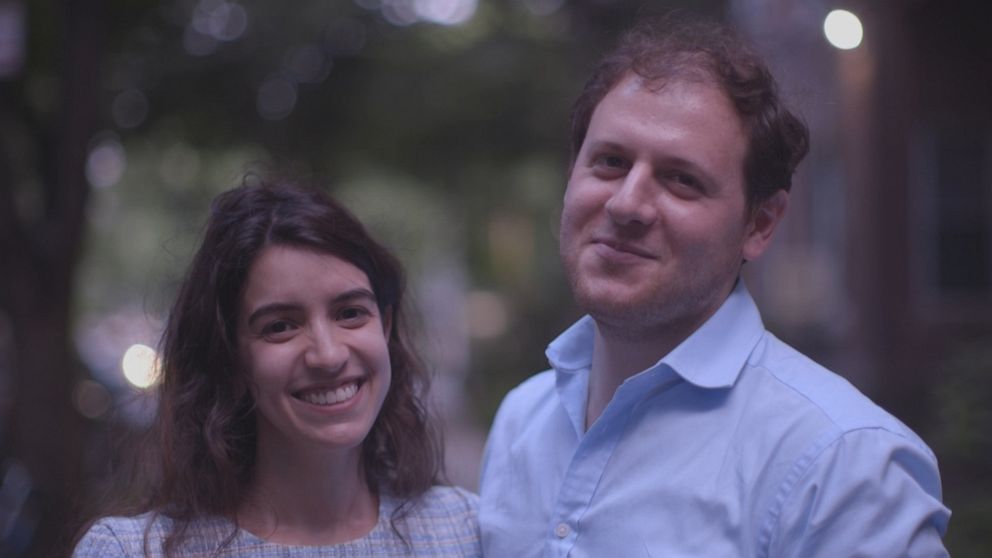
That’s when the young couple turned to Grazi, who was also a friend of the family.
"Considering that Adam had to preserve his fertility by banking sperm before he went through treatment for his cancer, the most efficient way to use that sperm was in vitro fertilization and that's why we chose that route," Grazi told ABC News.
Lazaros banked his sperm before undergoing chemotherapy. Throughout treatment Lazaros kept a positive attitude, according to his wife.
"I was putting Benji to bed and I was sitting alone in the room with him; it just struck me that we were facing something where I could always be alone in the room with him," Aviva said through tears.
In August 2017, the couple received news that Lazaros was cancer-free. It marked the end of one journey and the beginning of IVF.
Love, 30, began the IVF process in 2018 under Grazi’s watchful eye. After retrieving 29 eggs the couple ended up with 20 embryos.
"Even though we have other embryos, it’s just still a lot riding on each one. You know at that point everything is out of the doctor’s hands and all squarely on my uterus," Love said as she was preparing for her first embryo transfer.
"There’s a little voice in the back of my head that’s saying, 'Of course it’s not going to work the first time,'" Lazaros said.
Less than two weeks after the transfer, Grazi called the couple in their Brooklyn apartment to tell them they were pregnant. Following the news, Love reported to Grazi’s office for her daily blood tests.
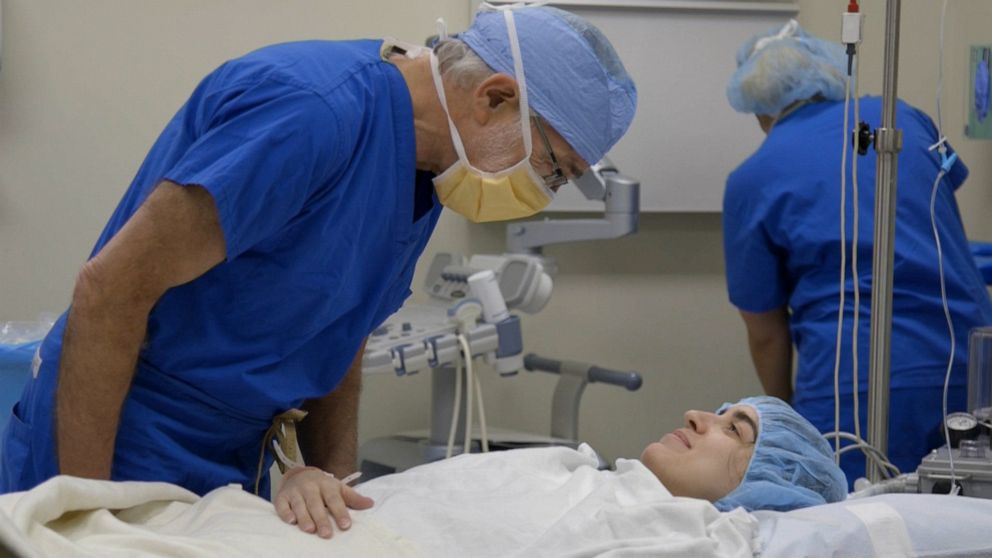
A sonogram appointment at eight weeks revealed the fetus no longer had a heartbeat.
"I think back now to when we got the news that the implantation was successful and I wish in a way that I could erase that memory," Love said.
The couple decided to take a break to grieve their loss before beginning another round of IVF.
Aviva began her second round of IVF a few months later and is expected to give birth early this summer.
"It was a little bit different doing it a second time knowing what we know now and seeing the less happy side of IVF," Lazaros said.
Benji is excited to be a big brother, according to his parents.
Adopting an embryo
Kerri and Chris Morgan say it was love at first sight when they met for their first date on March 7, 2015. The pair had started chatting on Tinder six days prior and haven't been able to stop since that fateful swipe. On their first date, Kerri, now 35, said they talked about having kids right away.
“First trying to conceive naturally was definitely an odd feeling considering 38 years of my life, I've been trying to do the exact opposite," Chris Morgan, 38, said. "Once it wasn't happening, it was definitely stressful."
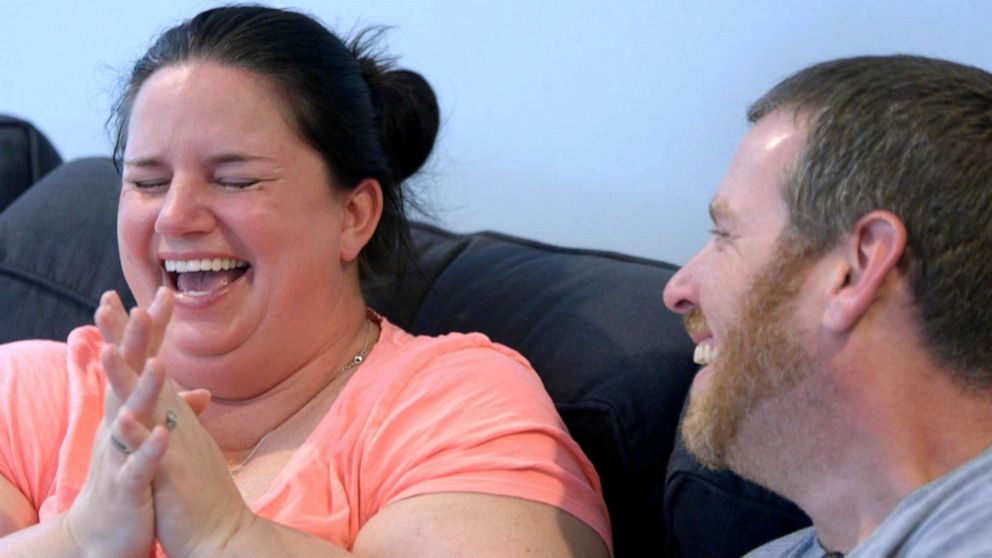
After a number of tests, Kerri was diagnosed with low ovarian reserve and faced issues with her fallopian tubes. Six months into their marriage they began fertility treatments.
Fertility treatments can be expensive so the Morgans decided they would only try only one round of IVF. An average cycle of IVF and its associated medications can cost between $10,000 and $15,000, according to the Society for Assisted Reproductive Technology.
"We just decided to be realists and not bankrupt ourselves and put ourselves living in a box on the side of the road for the sake of having a family," Chris said.
The process, in all IVF cycles, is that the eggs are removed from a woman's ovaries during an egg retrieval and fertilized outside the body in the laboratory, where the fertilized egg cell begins to divide. The resulting embryo(s) are eventually transferred back into the uterus, and, it’s hoped, will grow uneventfully to a full-term pregnancy and live birth.
The Morgans' doctor was able to retrieve five eggs from Kerri, but the two embryos did not survive.
"It was literally like losing our children," Kerri told ABC News as her voice cracked and tears filled her eyes.
Although the grieving process was tough, the Morgans were not ready to give up on their dream of parenthood. Just as she had turned to the internet to find love, Kerri looked again to find a new path forward for her family.
When couples decide that their family is complete but still have embryos remaining in the lab, they may donate them to someone unable to conceive.
Kerri, who resides in Wappingers Falls, New York, with Chris, found Becky and Jim Sykes, a couple in West Virginia who had two male embryos left over from their own IVF process. The Sykes felt their family was complete after having two boys through IVF.
"That really spoke to me, and it just made me feel good about all the people that would be getting helped in the process of this," Chris said.
Adopting the embryos began with a profile on a website called the National Registry for Adoption, a site that connects people like the Morgans with families who have embryos left from their cycles.
There are more than 600,000 frozen embryos stored in the United States, according to the U.S. Department of Health & Human Services.
Emails between the couples evolved from talking about embryos to what they like to do for fun. Kerri and Chris eventually adopted two male embryos from Becky and her family.
"I feel as if like we're having a baby, but we're also adding five members to our family," Chris said.
The Morgans forged a loving relationship with the donor mother who was in constant communication with them and sent messages almost on a daily basis following the embryo adoption.
The transfer of the first donated embryo failed. The Morgans were feeling the pressure with one embryo left. Kerri told ABC News she felt guilty for the unsuccessful pregnancy, but when she spoke with Becky, Kerri said she received nothing but love and support. Kerri questioned, "Is my body just not made to be pregnant?"
Shortly before the second transfer, Becky sent the Morgans a much-needed care package that included a shirt with the message "baby dust bae" for Chris to wear on transfer day.
About two weeks after the doctor placed the second thawed embryo into Kerri’s uterus, the couple took a pregnancy test at the doctor’s office and waited anxiously for the phone to ring.
"We just got the results of the pregnancy test and I’m thrilled to tell you it’s positive," the nurse from Hudson Valley Fertility Center told Kerri on May 30, 2017.
When the Morgans received the good news that the second embryo transfer was complete, one of the first calls they made was to Becky -- who screamed almost as loud as Kerri did upon hearing the news.
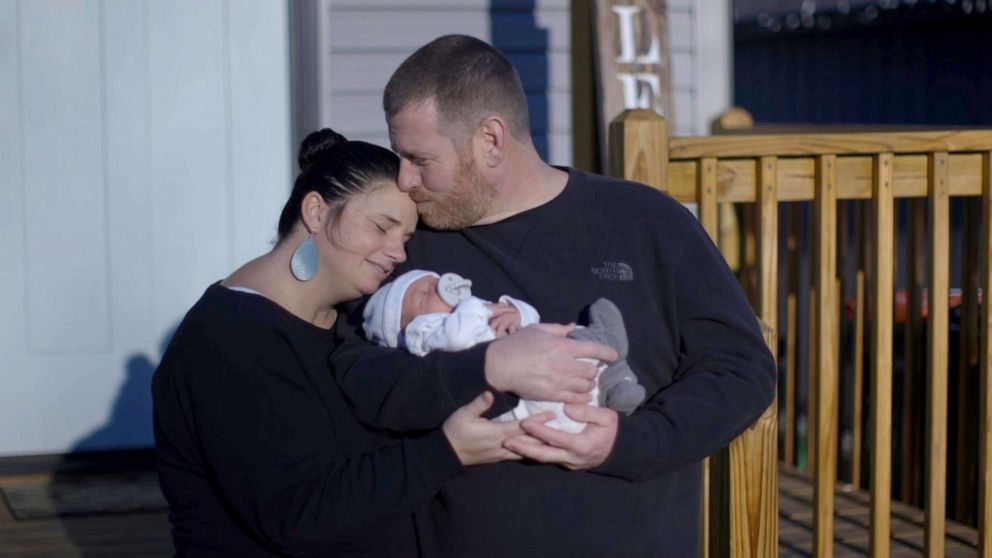
Kerri and Chris gave birth to Brian Luke Morgan in January 2019. They plan to introduce him to Becky, Jim and his two brothers this summer.
GoFundMe for parenthood
LaTanya and James Braxton, of Antioch, Tennessee, never imagined they would need IVF when they married eight years ago and dreamed of having "a minivan worth of kids." The couple conceived their son Micah James naturally before losing him in premature childbirth in December 2011.
After losing Micah, they struggled with infertility. LaTanya, a 35-year-old who works as a nonprofit administrator, has damage to her tubes which is limiting her ability to get pregnant on her own, according to her physician, Dr. Christopher Montville, at Tennessee Fertility Institute. Dr. Montville recommended IVF as their best chance to conceive a child.
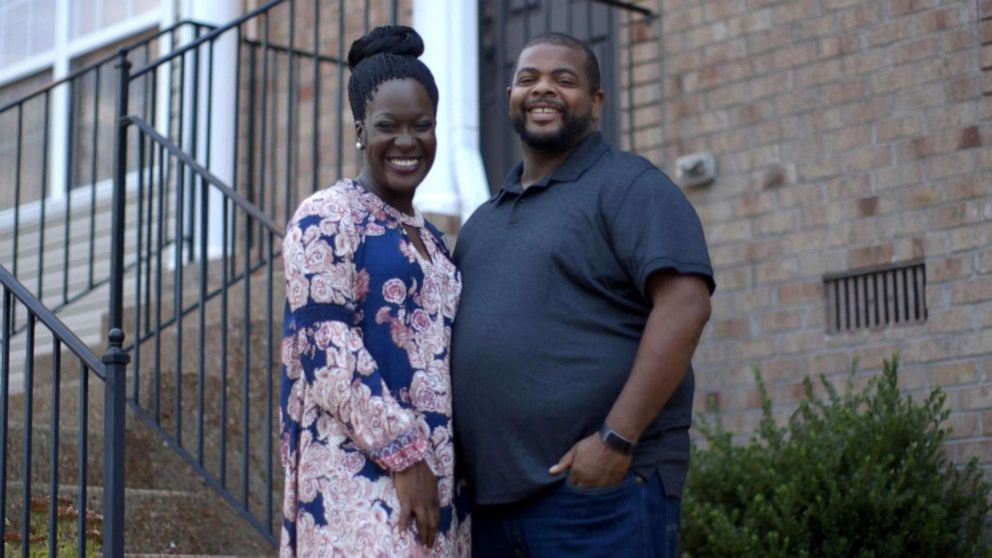
James, a 34-year-old who works as a rideshare driver, at first struggled with the notion of using IVF. James and LaTanya both turned to their faith to guide them through difficult times and were unsure about the science behind IVF.
"It almost seemed like this was kind of a shortcut or a substitute. So it didn't really feel like it was my seed," James said. "It took so long for me to get that out of my head, the stigma of it."
James added, "Is that really our last option of having kids?"
But after a conversation with their doctor and walking through the science of IVF, James began to understand how the process could help them achieve their dream of conceiving their own biological children.
"That was just the lack of knowledge and not being educated on what IVF was and what it actually does," James said.
Once they decided to start IVF, they realized they couldn’t afford the $19,000 cost. The couple, who live in Nashville, Tennessee, do not have insurance that covers IVF procedures. James decided to get creative and took out a loan, which he presented to LaTanya on Mother’s Day in 2018.
"People get loans for cars, people get loans for houses, you know for us we're getting a loan for something we really want and that's to start our family," LaTanya said.
But James didn’t account for the high cost of medicine that comes with an IVF cycle.
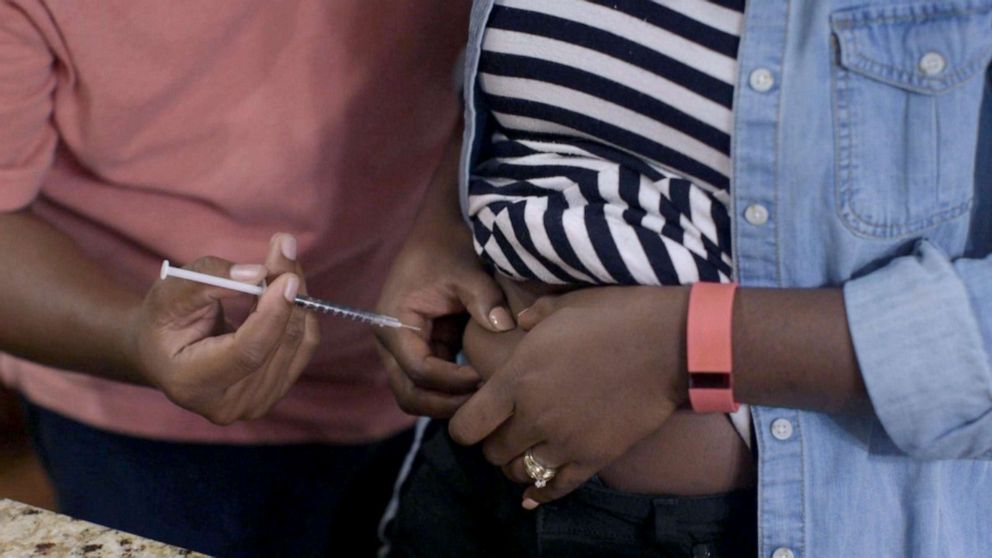
"We decided to be creative in exploring the different ways we could cover the difference and GoFundMe was one of the best opportunities we have," James said.
The Braxtons posted a video on their GoFundMe page explaining their decision to go this route. The couple said they already had verbal commitments from friends and family that they wanted to contribute. The Braxtons said they needed another $2,000 to $3,000 to cover the cost of medication.
Using social media in addition to GoFundMe was a way for the couple to keep family and friends up to date on their IVF journey in a personable and relatable way.
After six years of pain and prayer, the Braxtons received the news in September 2018 that LaTanya was pregnant with twins after their first round of IVF. But 22 weeks into the pregnancy doctors could no longer detect heartbeats for either twin.
"I did the best that I could do to be their mom while I could. And, you know, that's what I say to God. I say, 'It hurts. And I miss them and I long for them. But I'm actually really glad that they're with you because that's a better place for them,'" LaTanya said. "And it's hard to say that."
Much like after the loss of Micah, the couple has turned to their faith and community for support as they contemplate the next steps.
"I saw that I could do it. And I know what to expect now. It doesn't mean that it will be easy," LaTanya said. "Our goal is to continue to build our family and to take hold of what we believe -- our promise to be able to raise kids in our home -- and IVF helped us do that."
The Braxtons still have nine frozen embryos and intend to try IVF again when LaTanya's body is ready. James is also taking classes and investing in new ventures to be able to have the funds to make their dream of having a family a reality.
'The world order has changed'
"I literally thought of IVF the minute I met him," Yessie Williams, 38, said holding her newborn son Elias just days before Mother’s Day 2018. Yessie and her wife, Sarah, welcomed home their "most wanted kid in America" after a more than three-year struggle to conceive via IVF.
"When I came out [as gay], I just thought that, 'I probably won't get to actually have a child.' I just wasn’t educated in that way," Sarah, 32, said.
The couple, married for six years and living in Brooklyn, New York, began their IVF journey looking for a suitable sperm donor.
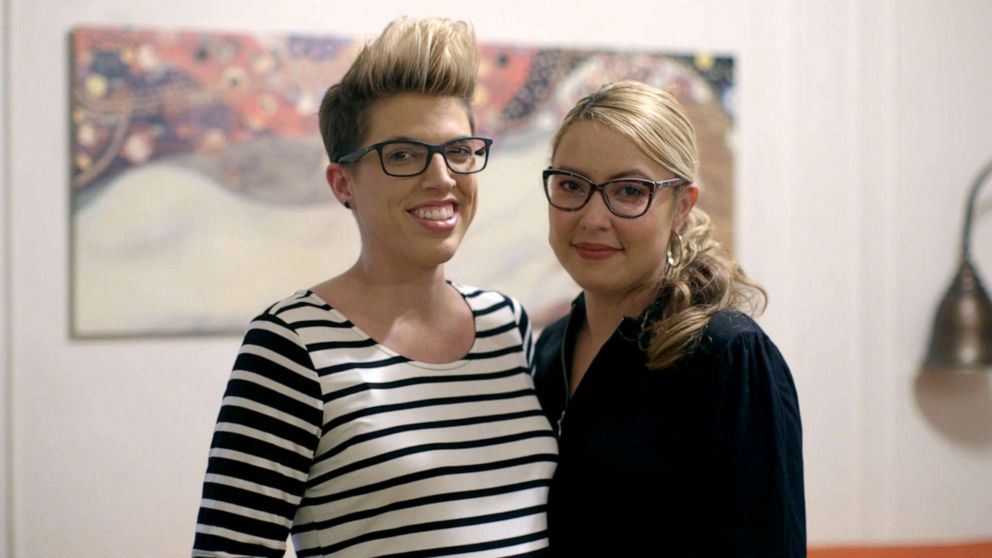
"If you’re going to choose a sperm donor, you want to choose the healthiest one," Sarah said. "You don’t want to just like swipe left or swipe right, 'You’re cute, you’re cute,'" Sarah said.
Sarah, a hairstylist, likened the process to speed dating. Throughout the entire process and multiple attempts, Sarah and Yessie used just one sperm donor. In total, the Williams say they have spent more than $20,000 out of their own pocket over the last three-and-a-half years, even though they both have insurance that covers some of their IVF treatment. Around $8,000 of that has been on the cost of sperm.
"We read the donor’s essay and I think that really changed things for us. It was really beautifully written and talked a little bit about all families deserve to have children," Sarah said.
The couple decided Yessie, a bank manager, would be the first one to try to carry a baby since she is six years older. Three years, two unsuccessful embryo transfers and a failed pregnancy later, the couple decided Sarah would be next to embark on the IVF journey.
"It’s a hard word to say but Yessie felt like a failure. ... I’m supposed to be able to do this, I’m a woman," Sarah said about her wife. "I knew I wouldn’t do it as gracefully as Yessie probably could, but you know I was prepared to do it regardless."
Sarah admitted she was worried about how her wife would feel if she were to get pregnant, but Yessie said she’s at peace with where they are in their IVF journey and the end goal was just to start a family.
During a trip to Austin in 2017, Sarah took a pregnancy test every day following her first transfer. And each day the line telling her she was pregnant got darker. After arriving home, a trip to the doctor confirmed the news when Elias' heartbeat was detected.
"I think it was the best sound I ever heard in my life. Finally hearing that and finally getting to this point that we wanted so badly," Sarah said.
The couple has five embryos left from Sarah's egg retrieval. Although Sarah said she did not miss the hormone shots and that she will miss her whiskey, she’s starting to prepare her body for baby number two. The couple had their first doctor's appointment with Kofinas Fertility Group in Brooklyn last week.
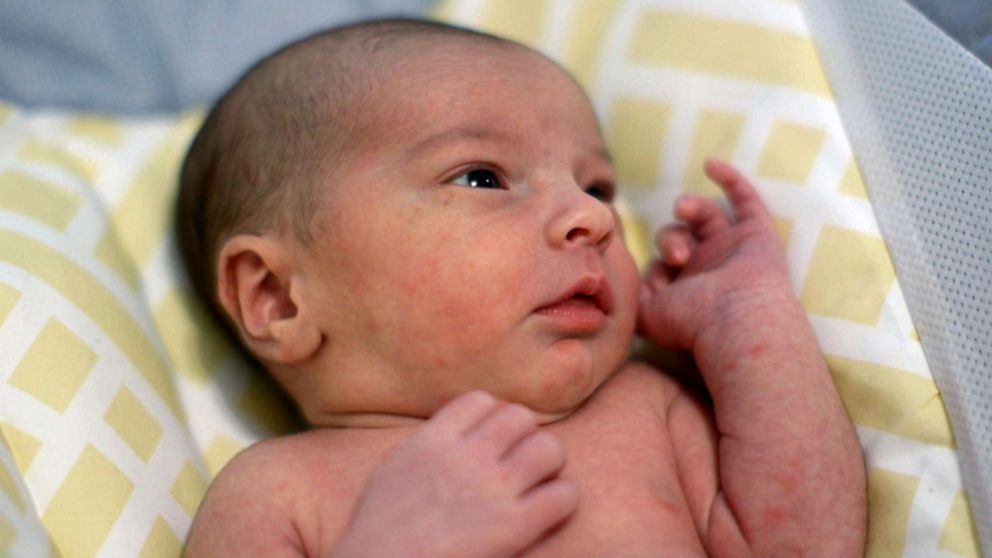
"Years ago, it was just very much the norm to have a husband, a wife, a baby. And you got married first," Sarah's mom, Karen Hathorn, said. "The world order has changed."
Their son Elias will celebrate his first birthday in May.
